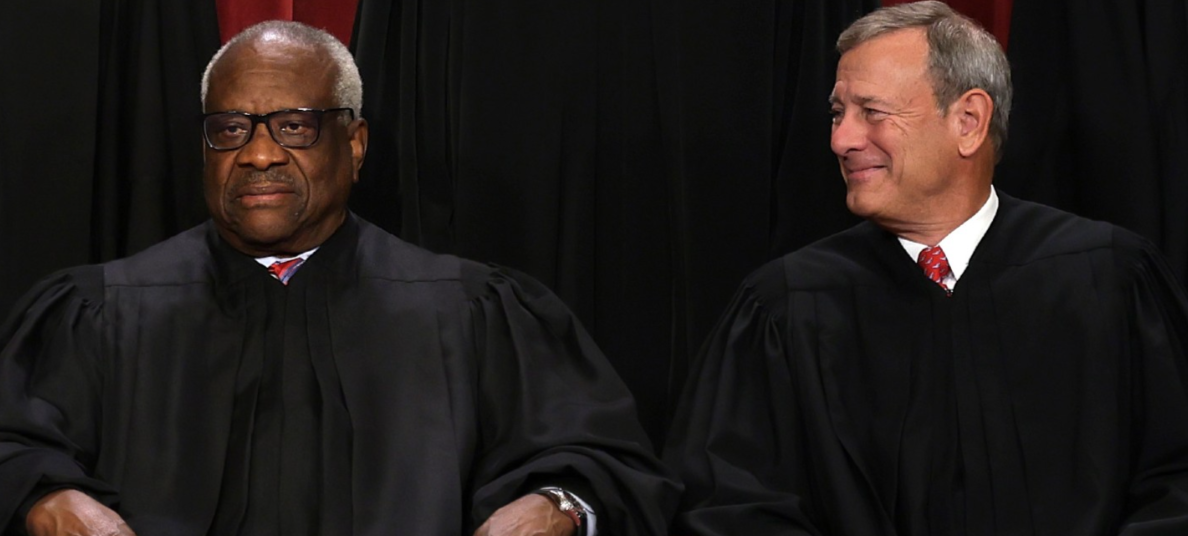SCOTUS Declines College Bias Response Team Challenge; Thomas, Alito Dissent

The U.S. Supreme Court has opted not to review the constitutionality of college bias response teams.
Despite differing views from two conservative justices, Clarence Thomas and Samuel Alito, the court declined to hear a lawsuit filed by Speech First against Indiana University officials. Speech First is an organization focused on safeguarding students’ First Amendment rights.
The organization has frequently challenged colleges nationwide over the use of bias response teams, which allow anonymous bias reports and may refer students for disciplinary action, according to The Hill.
Last year, Speech First pursued a similar lawsuit against Virginia Tech, but the Supreme Court chose not to take it up. Virginia Tech later disbanded its bias response team.
“Given the number of schools with bias response teams, this Court eventually will need to resolve the split over a student’s right to challenge such programs,” Thomas wrote on Monday.
“The Court’s refusal to intervene now leaves students subject to a ‘patchwork of First Amendment rights,’ with a student’s ability to challenge his university’s bias response policies varying depending on accidents of geography,” he continued, echoing his dissent when the Virginia Tech case was dismissed.
Speech First sought to use the Indiana lawsuit to clarify the legal issue, arguing that it exacerbated the division among courts regarding whether students can sue when bias response teams suppress speech in a way that violates the First Amendment.
“Precisely because speech codes are often struck down, universities have looked for subtler, more sophisticated ways to chill disfavored speech. Enter the bias-response team,” Speech First stated in its petition.
“Instead of outright banning biased speech, these teams deter it by threatening students with adverse consequences. They also burden it by imposing a series of administrative and other costs on students who commit ‘bias incidents,’” the petition continued.
Indiana school officials urged the justices to reject the case, characterizing Speech First as a “frequent flier of lawsuits against higher-education institutions.”
“The case is thus not a remotely serviceable vehicle for reaching Speech First’s purportedly split-closing question. No such split exists, and this appeal would lead nowhere anyway,” they stated in court documents.
The Supreme Court has recently been in the spotlight for major rulings.
Last week, the court declined to revisit its past ruling that permitted buffer zones around abortion clinics, even though two of its most conservative members opposed the decision.
In two orders released Monday, the court refused to hear challenges to laws in Carbondale, Ill., and Englewood, N.J., that restrict anti-abortion activists from engaging in “sidewalk counseling” near abortion clinics.
Justices Clarence Thomas and Samuel Alito expressed their willingness to take on the case, but it required four votes for the court to proceed, as reported by The Hill.
Lower courts upheld the ordinances in both cities based on the Supreme Court’s 2000 decision in Hill v. Colorado, which ruled that a comparable Colorado law did not infringe on First Amendment rights.
Since then, anti-abortion groups have sought to overturn that precedent. Some conservative justices have criticized the ruling as an infringement on free speech, especially in the court’s recent decision that rescinded constitutional protections for abortion, which bolstered their arguments.
“Hill has been seriously undermined, if not completely eroded, and our refusal to provide clarity is an abdication of our judicial duty,” Thomas wrote.
“Hill was wrong the day it was decided, and the case for overruling it has only strengthened ever since,” wrote Paul Clement, a veteran conservative Supreme Court attorney and former solicitor general, in the petition challenging Carbondale’s ordinance.
Coalition Life, an anti-abortion organization involved in “sidewalk counseling” efforts in Carbondale, was represented by Clement. The group sought assistance from 15 Republican state attorneys general, Alliance Defending Freedom, and other anti-abortion organizations in its attempt to overturn the decades-old rule.
Carbondale argued that its law had already been invalidated and urged the court to reject Coalition Life’s appeal.
“Petitioner wants to fast-track a request that this Court overturn Hill just as it overturned Roe v. Wade. This Court should deny that request. This case is a far cry from an ideal—or even passable—vehicle for revisiting Hill,” wrote Neal Katyal, a prominent Supreme Court advocate and former acting solicitor general under President Barack Obama, representing the city.
Meanwhile, in Englewood, resident Jeryl Turco challenged a similar 2014 ordinance that established a buffer zone around an abortion clinic in response to aggressive demonstrations by a group known as Bread of Life.
Turco, who is not affiliated with the group, argued that the ordinance restricted her First Amendment rights, preventing her from conducting sidewalk counseling as she had before.
Jay Sekulow, lead counsel at the conservative American Center for Law and Justice and a lawyer for former President Trump during his first impeachment trial, represented Turco.
Englewood defended its ordinance, asserting that the case was “extremely fact-sensitive and involves material credibility issues that the District Court has resolved. Also, the facts of this case are unique because of Petitioner’s method of sidewalk counseling.”